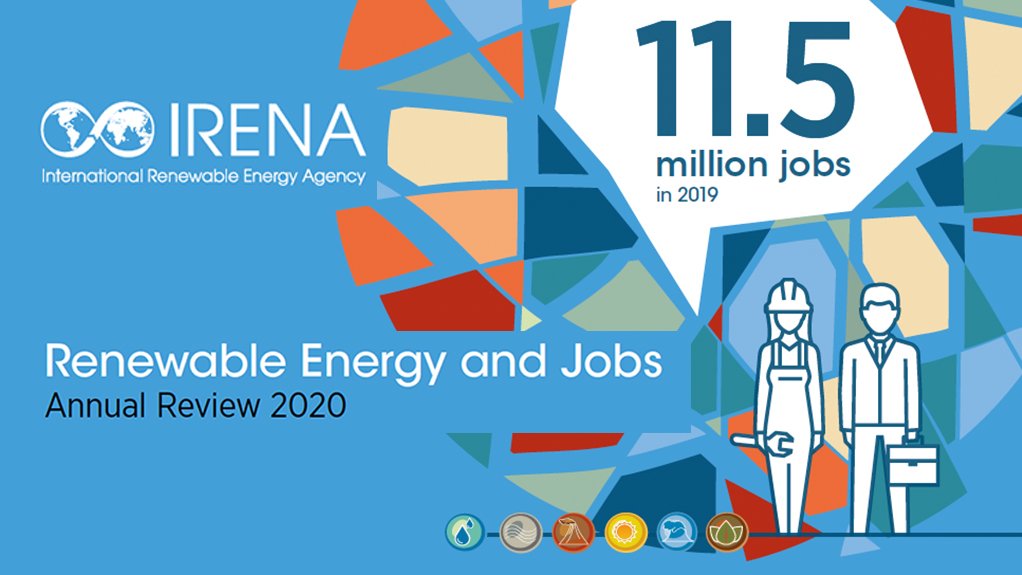- Renewable Energy and Jobs - Annual Review 20205.06 MB
Renewable energy technologies create jobs and up and down the supply chain and can spur broad and sustainable social and economic development. Renewables accounted for an estimated 11.5-million jobs worldwide in 2019, up from 11-million the previous year, according to this seventh edition of the Renewable Energy and Jobs series.
While few large markets still account for the bulk those jobs, employment in renewables has started spreading more widely, especially through the proliferation of solar photovoltaic (PV) panels. Solar PV accounted for 33% of the world’s renewable energy workforce in 2019. Asia accounted for 63% of total jobs in renewables.
Off-grid decentralised renewables account for increasing numbers of direct jobs, especially in Africa, as well as propelling employment in agro-processing, health care, communications, local commerce and other productive uses, the report finds. Latin American renewables jobs are concentrated in biofuels and hydropower.
Employment opportunities are a key consideration in planning for low-carbon economic growth. Many governments have prioritised renewable energy development, firstly to reduce emissions and meet international climate goals, but also in pursuit of broader socio-economic benefits. Renewables could support an improved gender balance in the future energy sector. Women currently hold an estimated 32% of the world’s renewable energy jobs.
To build the skills base for the transition from fossil fuels to renewables, countries will need more vocational training, stronger curricula, more teacher training and expanded use of information and communications technology for remote learning. The COVID-19 pandemic has underlined the need for renewables to meet social, economic and environmental needs.
Report by Irena
EMAIL THIS ARTICLE SAVE THIS ARTICLE ARTICLE ENQUIRY
To subscribe email subscriptions@creamermedia.co.za or click here
To advertise email advertising@creamermedia.co.za or click here











